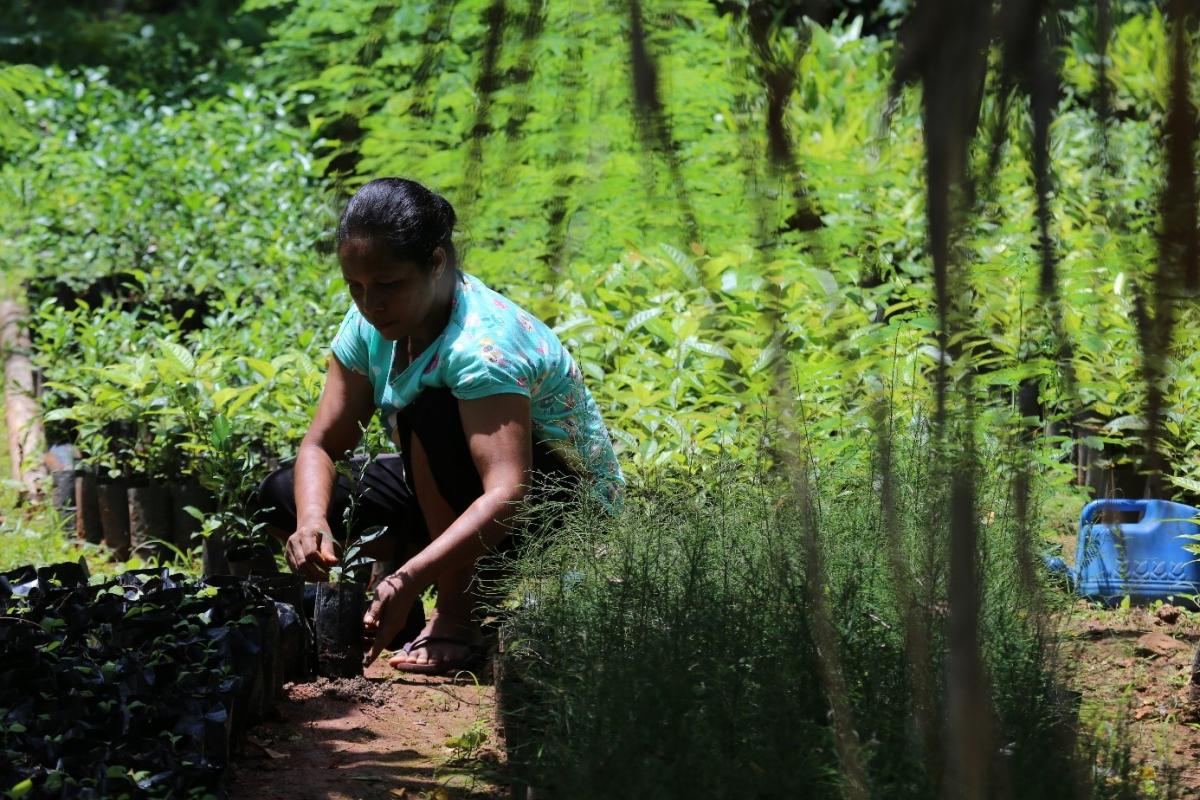- Home
- Worldwide
- CIRAD worldwide
- Projects
- Ai ba Futuru project
Partnership for sustainable agroforestry (PSAF) - Ai ba Futuru

Issues
Given their substantial CO2 sequestration capacity associated with their plant and tree cover, Agroforestry Systems (AFS) are a means of mitigating climate change. Maintaining diversified agricultural systems, such as AFS, helps to respect the balance of the ecological spaces with which they are associated.
Description
The project has two main components:
- Agronomic, sociological, economic and ecological diagnosis taking a systemic approach to analysing agrarian and agroforestry systems;
It involves a funnel approach, starting from a general perception of the landscape and an historical analysis of the zone, through semi-directive interviews. A typology of agrarian and agroforestry systems is established and the economic performance of the different types of AFS is modelled, through semi-directive interviews and participant observations in the communities. Various ecological indicators are modelled (biodiversity, dynamics of carbon storage in plant biomass and soil, water-holding capacities, etc.), and plant diversity and soil inventories will be conducted in partnership with rural communities. Some participatory mapping workshops are to be organized with two rural communities representative of the different dynamics identified during the diagnosis, in order to illustrate the strategy of “village land” use and the possibility, or not, of expanding agroforestry systems. Lastly, the study results will be visually and cartographically modelled, to serve as a basis for exchanges with the interviewed communities.
- Promotion of agroforestry systems.
Workshops are to be organized to discuss the merits of, and prospects for, developing agroforestry systems, involving the different stakeholders (communities, State services, international partners). Some local students are involved in implementing the research (taking measurements, interviews, analysing results, etc.) and seminars are to be conducted at the national university, UNTL.
Expected Impacts
- Promoting AFS as a sustainable means of production contributes to the agrarian transition needed in Timor Leste (growing urban areas, “exodus” of young people, insertion within a globalized economy, etc.), while preserving already existing methods and know-how adapted to the environmental conditions;
- Intensifying production through AFS (growing of a broad panel of crops linked up to multiple markets) enables rural communities to guarantee systems that are economically and nutritionally, but also environmentally, resilient (biodiversity, and soil and water conservation dynamics, low input requirements);
- Combining forestry and agricultural crops helps to mitigate the effects of climate change, due to their high ability to sequester carbon in the perennial, semi-perennial and annual biomass produced via photosynthetic processes;
- Concepts and methods will be developed in partnership with institutional organizations (GIZ and their partners, National University UNTL, Timorese Ministry of Agriculture and Forests, etc.), along with local institutions within the rural communities, opening up the way for new scientific and technical exchanges between CIRAD and the institutional and research actors in Timor Leste.
Contracts Partners
National University of Timor Leste























